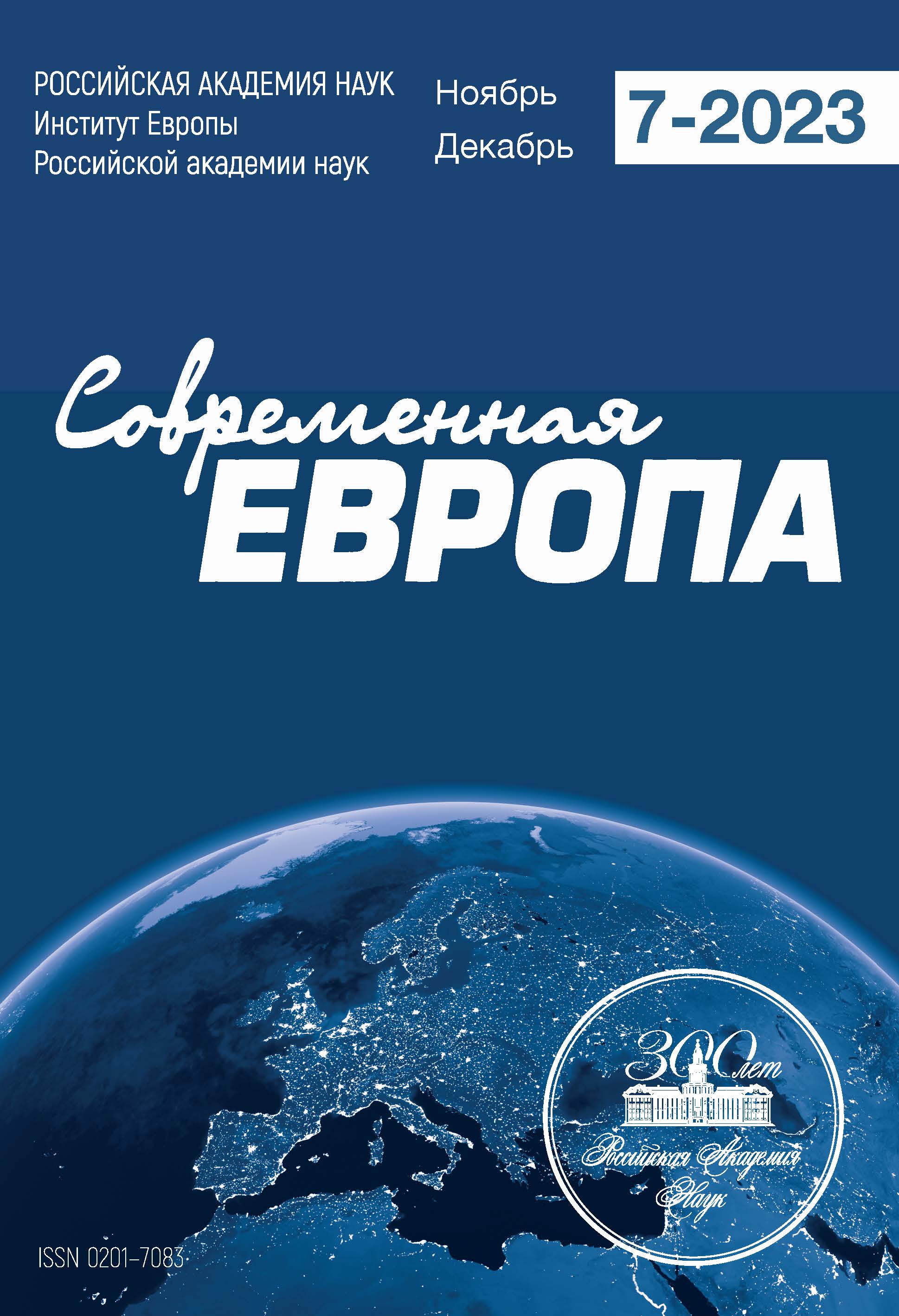Dynamics of the political situation in the V4 countries against the background of the special military operation
- 作者: Shishelina L.N.1
-
隶属关系:
- Institute of Europe Russian Academy of Sciences
- 期: 编号 7 (121) (2023)
- 页面: 64-75
- 栏目: Articles
- URL: https://clinpractice.ru/0201-7083/article/view/652173
- DOI: https://doi.org/10.31857/S0201708323070057
- EDN: https://elibrary.ru/RXULIE
- ID: 652173
如何引用文章
详细
This article continues the analysis of the political situation in the Visegrad Group countries against the background of the Special Military Operation (SMO) in Ukraine started in 2022 (Contemporary Europe, no. 7, 2022). The situational analysis of 2023 is based on a large database of statistical data, reports from leading analytical centers and articles by experts in the region. The study suggests that the SMO and its consequences, including sanctions, significantly affected not only the socio-economic and political situation and the results of elections in three countries in the region in 2023. In January 2023 the citizens of the Czech Republic for the first time elected an army general as president, which could be a reflection of the desire for greater security. The political crisis that began in 2018 in Slovakia, has been solved by the new election of the leader of the SMER - Social Democracy party Robert Fico. This could be a reflection of the society's desire for stability, which before the crisis was associated with Fico’s activities to defend the national interests. In Poland the Law and Justice party is no longer in power. The turn to the opposition symbolizes a certain fatigue from the principles that are associated with the past. Some new trends have emerged in the political field of the region, indicating a desire for stabilization.
作者简介
Lyubov Shishelina
Institute of Europe Russian Academy of Sciences
Email: l.shishelina@gmail.com
Moscow, Russia
参考
- Ведерников М.В. (2023) Референдум о доверии Бабишу проигран - итоги выборов президента Чехии. РСМД. 02.02. URL: https://russiancouncil.ru/analytics-and-comments/analytics/referendum-o-doverii-babishu-proigran-itogi-vyborov-prezidenta-chekhii/(дата обращения: 30.10.2023).
- Михалев О.Ю. (2023) Приоритеты политики Польши в отношении Украины. Современная Европа. № 6. С. 38-48. doi: 10.31857/S0201708323060049
- Русакова М.Ю. (2022) Венгрия и Польша: новый этап противостояния с Брюсселем. Современная Европа. № 7. С. 82-91. doi: 10.31857/S0201708322070075
- Четверикова А.С. (ред.) (2022) Пределы самостоятельности Вишеградской группы в ЕС. ИМЭМО РАН, Москва. 153 с. doi: 10.20542/978-5-9535-0606-9
- Шишелина Л.Н. (2021) Драматический weekend российско-чешских отношений. РСМД. 28.04. URL: https://russiancouncil.ru/analytics-and-comments/analytics/dramaticheskiy-weekend-rossiysko-cheshskikh-otnosheniy/(дата обращения: 10.10.2023).
- GLOBSEC (2022) Globsec Trends 2022. CEE amid the war in Ukraine. URL: https://www.globsec.org/sites/default/files/2022-05/GLOBSEC-Trends-2022.pdf
- GLOBSEC (2023) Globsec Trends 2023. United we (still) stand. URL: https://www.globsec.org/sites/default/files/2023-05/GLOBSEC%20Trends%202023.pdf
- Mesežnikov G. (2022) Stance of the V4 countries towards Russian military aggression against Ukraine. Heinrich Böll Stiftung. 20.12. URL: https://cz.boell.org/en/2022/12/13/postoje-krajin-v4-voci-ruskej-agresii-proti-ukrajine (accessed: 10.10.2023).
补充文件









